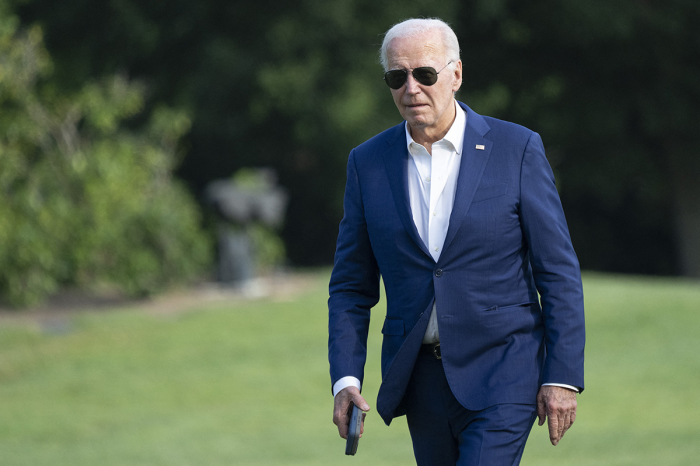Biden doctor met with Parkinson’s expert at White House, visitor logs show

White House visitor logs reveal that President Joe Biden’s personal physician, Dr. Kevin O’Connor, met with Parkinson’s disease expert Dr. Kevin Cannard from Walter Reed Medical Center earlier this year. The revelation comes amid heightened scrutiny over the president’s health following a concerning debate performance.
In January, O’Connor convened a meeting at the White House with Cannard, who specializes in movement disorders, and two other unidentified individuals, as disclosed by the White House visitor logs, the New York Post reported.
Dr. John Atwood, a cardiologist from Walter Reed, was also present, although the identity of the fourth attendee remains unknown.
According to a White House spokesperson, the visit was part of a routine wherein specialists from Walter Reed regularly consult at the White House to treat military personnel stationed there, noted National Review.
Cannard’s expertise in Parkinson’s is well-documented, having co-authored research on the disease’s early stages and actively engaged in ongoing studies with partners at Vanderbilt University. His profile on Doximity features his extensive work in this field.
Parkinson’s disease typically presents symptoms like tremors, movement difficulties, speech changes and impaired balance, which progressively worsen, often starting on one side of the body.
The timing of this consultation coincides with 81-year-old President Biden’s notably poor performance at his first presidential debate, where his speech appeared slurred, and he struggled with coherence, battling against former President Donald Trump, who is 78. The incident fueled widespread speculation and concern regarding his cognitive health, leading to calls from within his own party for reconsideration of his candidacy as the national convention looms.
Following the debate, the White House confirmed that Biden had consulted O’Connor about a cold he experienced during the debate, which had not been disclosed earlier.
No medical evaluations have been reported since his annual physical in February, which concluded that Biden was fit for office. The results of any cognitive test were not released.
CNN medical analyst Dr. Gupta has advocated for Biden to undergo a comprehensive neurological examination and make the results public, citing concerns about the president’s confusion and altered facial expressions.
In an interview with ABC’s George Stephanopoulos, Biden dismissed the necessity of an independent cognitive test, attributing his lackluster performance at the debate to merely a “bad night.” He refuted suggestions that he should undergo a separate neurological assessment, asserting that his daily activities are sufficient cognitive testing, noted The Guardian.
During a recent meeting with over 20 Democratic governors, Biden discussed personal adjustments to his schedule, suggesting that he plans to avoid events after 8 p.m. to accommodate his need for more rest, The New York Times reported.
His offhand comment about needing more sleep because “it’s just my brain” was interpreted by some attendees as a humorous remark, while others found it concerning.
Moreover, Biden’s campaign tactics, including providing pre-approved questions to interviewers, have sparked debates about the controlled nature of his public engagements and raised questions about his team’s management of his public image.
Amid the ongoing debate, The Wall Street Journal said both Biden and Trump exhibit typical age-related challenges, like occasional forgetfulness and speech mishaps.
Geriatric experts note that while some cognitive changes are expected with aging, the extent and visibility can vary widely among individuals. “People vary. Some people decline a little bit more in these areas, a little quicker. Some people maintain it and never decline,” Dr. Mary Tinetti, geriatrician and professor of medicine at the Yale School of Medicine, was quoted as saying.





























